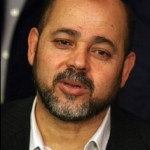Monday
Feb232009
Israel-Gaza-Palestine Alerts (23 February): Amnesty Criticises Israel and Hamas, Calls for Arms Embargo
 Monday, February 23, 2009 at 15:50
Monday, February 23, 2009 at 15:50
Related Post: Has the Obama Administration Brought Hamas into A Palestine Unity Government?
Related Post: Text of the Amnesty International Report

Evening Update (8:30 p.m. GMT): Even as the Obama Administration opens up the possibility of accepting Hamas in a Palestinian government (and thus meaningful truce talks with Israel), it is trying to keep up pressure on the Gazan leadership and re-insert Mahmoud Abbas and Fatah. US officials said that Secretary of State Hillary Clinton will announce more than $900 million in aid 0f at a donors' conference next week, however, ""This money is for Gaza and to help strengthen the Palestinian Authority. It is not going to go to Hamas."
Afternoon Update (3:15 p.m. GMT): Ehud Barak, leader of the Israeli Labor Party, has rejected Benjamin Netanyahu's offer to join a coalition government. The two had met this morning to discuss possible terms.
Egyptian authorities, despite the limited opening of the Rafah crossing, are blocking the movement of most Gazans. Among those refused exit from Gaza was photojournalist Sameh Habeeb, whom we have featured on Enduring America. Habeeb was travelling to Europe for a speaking tour.
7 a.m. GMT (9 a.m. Israel/Palestine): Amnesty International has released a report on the misuse of US weapons by Israeli forces during the Gaza war, calling on the United Nations to launch an investigation:
Amnesty also asked the UN to consider Hamas rocket attacks as a war crime.
Israel Radio reports that Prime Minister Ehud Olmert has suspended Amos Gilad, his envoy to the Egypt-brokered talks with Hamas. As we reported last week, Gilad had criticised the Olmert Government over its "inconsistent" position, notably its insistence on the pre-condition of a prisoner swap including Israeli soldier Gilad Shalit.
Olmert has also asked the Civil Service Commission to check if his envoy's published remarks amounted to insubordination.
After their meeting Sunday, Benjamin Netanyahu and Tzipi Livni, the leaders of the top two parties in this month's Israeli elections, have agreed to further talks on a Government coalition, although Livni said "substantial differences" remained.
Related Post: Text of the Amnesty International Report

Evening Update (8:30 p.m. GMT): Even as the Obama Administration opens up the possibility of accepting Hamas in a Palestinian government (and thus meaningful truce talks with Israel), it is trying to keep up pressure on the Gazan leadership and re-insert Mahmoud Abbas and Fatah. US officials said that Secretary of State Hillary Clinton will announce more than $900 million in aid 0f at a donors' conference next week, however, ""This money is for Gaza and to help strengthen the Palestinian Authority. It is not going to go to Hamas."
Afternoon Update (3:15 p.m. GMT): Ehud Barak, leader of the Israeli Labor Party, has rejected Benjamin Netanyahu's offer to join a coalition government. The two had met this morning to discuss possible terms.
Egyptian authorities, despite the limited opening of the Rafah crossing, are blocking the movement of most Gazans. Among those refused exit from Gaza was photojournalist Sameh Habeeb, whom we have featured on Enduring America. Habeeb was travelling to Europe for a speaking tour.
7 a.m. GMT (9 a.m. Israel/Palestine): Amnesty International has released a report on the misuse of US weapons by Israeli forces during the Gaza war, calling on the United Nations to launch an investigation:
Israeli forces used white phosphorus and other weapons supplied by the USA to carry out serious violations of international humanitarian law, including war crimes. Their attacks resulted in the death of hundreds of children and other civilians, and massive destruction of homes and infrastructure.
Amnesty also asked the UN to consider Hamas rocket attacks as a war crime.
Israel Radio reports that Prime Minister Ehud Olmert has suspended Amos Gilad, his envoy to the Egypt-brokered talks with Hamas. As we reported last week, Gilad had criticised the Olmert Government over its "inconsistent" position, notably its insistence on the pre-condition of a prisoner swap including Israeli soldier Gilad Shalit.
Olmert has also asked the Civil Service Commission to check if his envoy's published remarks amounted to insubordination.
After their meeting Sunday, Benjamin Netanyahu and Tzipi Livni, the leaders of the top two parties in this month's Israeli elections, have agreed to further talks on a Government coalition, although Livni said "substantial differences" remained.


 Evening Update (8:30 p.m.): Al Jazeera has a useful summary of the challenge facing the US military "surge", not from the enemy but from its allies. A two-day meeting of NATO defence ministers in Poland is highlighting that
Evening Update (8:30 p.m.): Al Jazeera has a useful summary of the challenge facing the US military "surge", not from the enemy but from its allies. A two-day meeting of NATO defence ministers in Poland is highlighting that  9:45 p.m. Still pursuing a cease-fire agreement with Israel, a senior Hamas delegation led by Moussa Abu Marzouk
9:45 p.m. Still pursuing a cease-fire agreement with Israel, a senior Hamas delegation led by Moussa Abu Marzouk